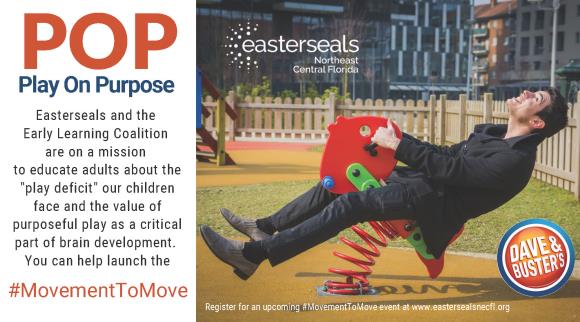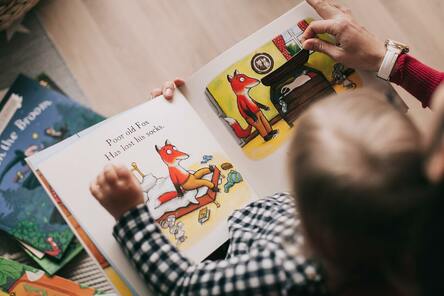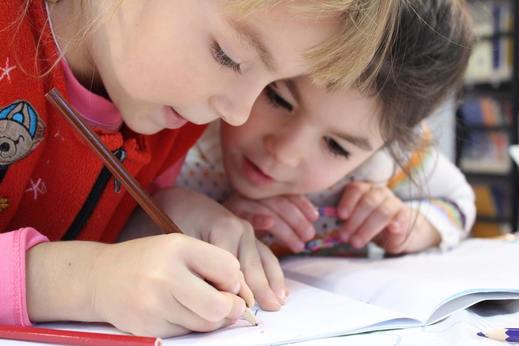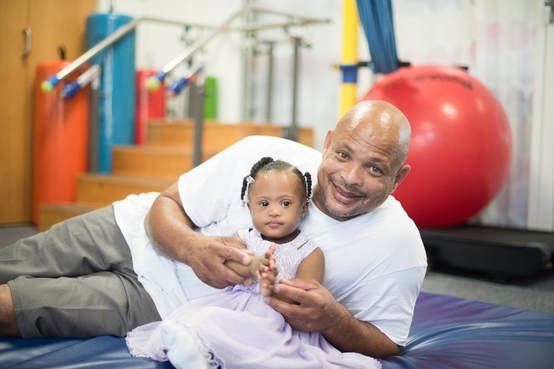 Local teens with special needs are invited to SOAR through summer with fun and confidence-building activities this July with Easterseals Northeast Central Florida. Easterseals will be hosting SOAR (School’s Out Afternoon Recreation), which will be offered in collaboration with YMCA, from July 13 through 31. The mini-program will be from 1 – 5 p.m. Monday through Friday at Easterseals Daytona Center, 1219 Dunn Avenue in Daytona Beach. The registration fee is $50 but will be waived for the first 5 clients with completed registration packets and financial assistance may be available for those who qualify. SOAR is for teens with special needs who are ready to pursue a higher level of independence in the areas of life skills, social skills, health, and wellness and successfully preparing for the workplace. The program is designed to encourage young people to their next level of independence and help them gain confidence in their abilities. Highly trained Easterseals employees who specialize in working with children and young adults with disabilities will staff the program. SOAR’s July mini-program is a precursor to a fall 2020 SOAR program in August and September and will be in an after-school program format. Parents and caregivers are encouraged to sign up for July or fall SOAR programs by contacting program coordinator Davine Vincent at (386) 944-7815 or [email protected]. Easterseals is changing the way the world defines and views disability – whether physical, intellectual, emotional or social – by making profound, positive differences in people's lives every day. To learn more about the many programs and offerings of Easterseals Northeast Central Florida, visit eastersealsnecfl.org or call (386) 255-4568.
3 Comments
 Help your child get into the swing of the new school year with these tips. Help your child get into the swing of the new school year with these tips. It’s hard to believe, but summer vacation is more than halfway over. And while many students need a few weeks to get accustomed to a summer schedule, the same is true for the start of school after a summer full of different routines, environments and structure. Children on the autism spectrum may need extra help and support transitioning back to school too. Easterseals Northeast Central Florida is here to help. Below we’ve collected suggestions on how to best assist young people with autism in successfully starting the new school year; suggestions that also will help parents and caregivers chart the course with greater ease:
And finally, ask for help when you need it, and leave the past in the past. Every school year is different, and challenges change along with them. This year won’t be like the ones before, so be ready with resources and an open mind. Reach out to your friends, family, and your Easterseals support team. We are here to help you and your child succeed in the new school year…and all year round. Sources: AutismSpeaks.org, IanCommunity.org, Chla.org  Hurricane season is June 1 through September 30. Be prepared! Hurricane season is June 1 through September 30. Be prepared! Andrea, Barry and Chantel: They may not be your next-door neighbors right now, but they’re the first three names on the Atlantic tropical cyclones list this year. So, it may be inevitable that you will get to know them! Hurricane season began June 1. There aren’t many hurricane seasons that pass by anymore without a major storm, so the first question today is: Are you prepared? The second question is: Are you prepared to have the smoothest possible experience during a storm as you care your child with disabilities? Now is the time to talk with your children about hurricanes and storms that occur during this time of year. Emphasize that safety is the priority, use age-appropriate language and address their fears and concerns at the get-go. When you’re ready to start preparing, the Federal Emergency Management Association (FEMA) offers several tips for caregivers who play in important role in hurricane preparedness for those with disabilities:
Children on the autism spectrum may have additional needs that should be addressed to successfully navigate severe weather. You can help your child adjust to new surroundings and ease their stress by doing the following:
Remember the usual disaster-supply kit items too. Don’t underestimate the value of an emergency kit that includes items every family should have on hand, such batteries, flashlights, a battery-powered radio, food and hygiene items. Can the kit be easily loaded and transported in your car, with room enough for the family to ride too? A simplified “go-to bag” for your child is another smart idea. Include in it your child’s basic hygiene items, a few changes of clothes, books, games and any necessary medications. As a matter of fact, it’s a great idea for any member of the family! Make one for each family member and include them in the kit. Experts have additional ideas to invite calm into these stormy situations:
When the storm has passed and you’re back home safely, keep an eye on your child and watch for any concerning changes in behavior, or sleeping or eating habits. Residual anxiety can last a while after the hurricane has passed; seek professional help if you’re concerned about post-traumatic stress. Click on the source links below for more details and tips, and as always, consult your Easterseals Northeast Central Florida team members if they can be of service as you prepare. Easterseals is here to support you. Remember, as Richard Cushing once said, “Always plan ahead. It wasn’t raining when Noah built the ark.” Together, we can be prepared for storm season and help our children have the calmest and most secure experience possible. Sources: Lovethatmax.com, hurricanepreparednesstips.com, fema.gov, savethechildren.org, nhc.noaa.gov  In response to kids' playtime crisis, Easterseals Northeast Central Florida and the Early Learning Coalition are teaming up this summer to remind adults why children need to "play on purpose" by offering unique educational and interactive events offered in Daytona Beach. The Play on Purpose (POP) events will be held at Dave & Buster's, 1507 Cornerstone Blvd., at the following times and days: 5 -7 p.m. Thursday, June 27; 12 - 2 p.m. Tuesday, July 9; 5 -7 p.m. Thursday, July 11; 12-2 p.m. Tuesday, July 23; and 5 - 7 p.m. Thursday, July 25. The cost is $35 per person. Business casual/casual attire is recommended. Why is playing on purpose an important issue to address in our community? In short, being a kid today isn't what it was 50 years ago. Children don't play as much as they once did – structured after-school activities have replaced spontaneous get-togethers, and free time has been replaced with scheduled activities. This reduced playtime has contributed to increased mental disorders in children, higher instances of childhood anxiety and depression and increased suicide rates among older children and young adults. The "play deficit" children face today is real, consequential and unhealthy, but thankfully, it's also reversible. Easterseals' POP events are formatted to educate adults as to why kids need more playtime and allow adults to engage in their own purposeful play in the process. At every event, participants will experience an interactive presentation about the value of playtime for children, engage in play challenges with other group members, enjoy tasty hors d'euvres and refreshments and then will be set free in Dave & Busters with a $10 play card to get more playtime in and to use their newfound knowledge. RSVP for an upcoming event below, or contact Susan Moor at 386-944-7820 at [email protected] to schedule at POP event for your organization. Register on your preferred date below: June 27, 5 - 7 pm July 9, 12 - 2 pm July 11, 5 - 7 pm July 23, 12 - 2 pm July 25, 5 - 7 pm Together, we'll erase the "play deficit" for the children of our community and launch the #MovementToMove!  Easterseals' Dorothy Lefford is on a mission to remind adults why kids need more playtime. Easterseals' Dorothy Lefford is on a mission to remind adults why kids need more playtime. Children don’t play as much as they used to. Structured after-school activities have replaced spontaneous get-togethers with other kids in the neighborhood, while free-flow creative time has been replaced with scheduled activities. Being a kid today simply isn’t what it was 50 years ago, and for Dorothy Lefford, OTR/L, VP-Clinical Services with Easterseals Northeast Central Florida, lack of playtime is so much a concern that she’s actively working to change it in our communities. “We call the phenomenon ‘play deficit,’ and we see many consequences for not allowing children to use their imaginations and play freely within healthy parameters every day and for significant intervals” said Lefford. Play deficit has been studied extensively in recent years, and Lefford is an engaged champion dedicated to reversing the phenomenon. “Whenever I assess a child’s development, I consider how much play is incorporated into their lives and whether it’s an issue that needs to be addressed. We can learn a lot about a child from how much unstructured playtime they enjoy,” she said. Experts have documented the repercussions of play deficit for many years. They explain that lessened play time, notably since the 1950s, has contributed to increased mental disorders in children, higher instances of childhood anxiety and depression and increased suicide rates among older children and young adults. “Kids need a chance to be free and explore in safe environments that allow them to thrive,” said Lefford, who now speaks to local childhood development leaders about the seemingly unlimited benefits of childhood play. In her program, “Movement to Learn: The Brain/Body Connection,” Lefford trains professionals on the research behind movement and brain development, and its impact on performance in school and after-school programs. Further, she helps groups understand environmental factors impacting motor development and what the body needs to ultimately function. In each session, staff learn resources and strategies to implement stress management and movement into the classroom too, and in the case of the Boys & Girls Club of Volusia/Flagler Counties, how to implement play into after-school programs. “When children are playing, they are learning,” said Lefford. “They not only flex their imaginations, but also learn to cooperate, share, and how to be assertive without dominating. These are the kinds of social skills that serve us throughout our lifetimes.” Added Lefford: “Playing is too important to ignore. I’m proud to work with organizations that understands its value.” To learn more about and bring Easterseals’ “Movement to Learn” training program to your organization, call Dorothy Lefford at 386-944-7856.  If you can’t remember what happens when you give a mouse a cookie, or why the pigeon wants to drive the bus, you may need to brush up on your reading – children’s book reading, that is. Reading to children ages 0 to Pre-K is a fun and effective way to help them develop their literary skills. Reading aloud to youngsters offers them numerous benefits, including building their imaginations and learning about their world and worlds they have yet to explore. In even the youngest children, reading supports social skills, basic speaking skills and increases their vocabulary. Books help children increase empathy too. All of these are some of the reasons Easterseals of Northeast Central Florida is recruiting readers for its 100 Leaders, 100 Readers program, which is kicking off soon in Daytona Beach and DeLand as part of Easterseals 100-Year Celebration. As part of 100 Leaders, 100 Readers, members of the community will be making guest appearances and reading aloud to students in Easterseals Charter Schools classrooms. (If you’re interested in this volunteer opportunity, please email Susan today!) If you’re out of practice reading books aloud to little ones, fear not. Check out these tips on how to keep your audience of youngsters captivated while you share your time and talents to support and encourage children’s literacy and Easterseals:
Pick up a children’s book today and read to a child you love, or join our 100 Leaders, 100 Readers program. As J.K. Rowing knows all too well, “…something very magical can happen when you read a book.” Sources: Pre-KPages.com, Pearson.com, ReadBrightly.com, ChildDevelopmentInfo.com, and Rasmussen.edu.  Pack comfort items for your child when they’re out and about. These may include a favorite toy, book, music or coloring supplies. Pack comfort items for your child when they’re out and about. These may include a favorite toy, book, music or coloring supplies. The holiday season can be a time of great joy, but for children with sensory issues, new schedules and once-a-year happenings can spell a-n-x-i-e-t-y. To reduce that possibility, Easterseals offers eight strategies to help parents and guardians and their sensory-sensitive children enjoy this festive season: 1. Prepare a schedule. A verbal, visual or handwritten schedule is imperative for busy days with sensory-sensitive children, particularly days that include multiple transitions and activities that may be unfamiliar to your child. Discussing events in advance and reviewing them several times can help a child understand what’s next, clarify expectations and reduce anxiety. Using social stories that include the timeline, activities and who’ll be attending can be comforting for children. Encourage questions and plan for any foreseen obstacles. 2. Be mindful of your child’s sensory needs. Try to avoid predictably stressful scenarios. For example, if your child does not like crowds, try shopping early in the morning or at night. If loud noises bother your child, try a smaller venue, or offer ear plugs or noise-reducing headphones. Determine a “break area” to serve as a safe escape as needed in case your child becomes overstimulated or overwhelmed. 3. Enlist your “village.” Have a family meeting and discuss holiday plans/activities that include your child. Discuss expectations with your family and problem solve potential obstacles in advance with them. 4. Prioritize sleep and meal schedules. Try not to deviate too much from your child’s daily schedule, with special attention to meal and nap/bed times. Keeping these predictable and scheduled as usual will pay off when it’s time to transition back to school, too. 5. Take proactive breaks. Locate a calm space/relax zone for each place you go and when possible, determine it in advance. Bring your child’s comfort toy(s) and identify a code word that your child can use to indicate they’re distressed. These often provide children with a sense of control and can reduce anxiety. Many meltdowns have been avoided by taking pro-active breaks. 6. Keep your child comfortable. Pack comfort items for your child when they’re out and about. These may include a favorite toy, book, music or coloring supplies. Bring extra items for your child to share with others to encourage socialization, too. If your child loves to play on your smartphone or another digital device, limit its use and only provide it during agreed-upon times (unless the device is used for communication with you). 7. Stay on track-food sensitivities: If your child has food allergies or sensitivities that may prevent them from enjoying holiday treats, bring alternatives enough to share. 8. Keep your holiday décor simple: The holidays are filled with twinkling lights, festive music and many new scents. To acclimate your child to changes in their home environment, for example, involve them in decorating. Allow them to help decide what and where holiday décor should be placed. Involving them in decision making gives a child a sense of control and can lead to some great “ah-ha” moments between you, too. Happy Holidays from Easterseals of Northeast Central Florida! We wish you all the love and joy the season brings.  Fueled by the mission of taking on disability together, Easterseals organizations around the world bring awareness, treatment and advocacy to adults and children with disabilities in America. The United States Government recognizes National Child Health Day every October 1 and stated in its 2018 Presidential Proclamation that “On Child Health Day, we renew our commitment to ensuring the health and well-being of our young people, who are the future of our great country. All children deserve to grow up in loving homes with parents or guardians who are dedicated to empowering them to live healthy, safe, and successful lives.” Easterseals is a partner in making this vision a reality and achieves it by creating and managing programs and services that make profound, positive differences in people’s lives every day. Easterseals of Northeast Central Florida’s services can be organized by how they fit into the “Live, Learn, Work, Play, Act” model: LIVE: These programs offer hands-on, comprehensive, vital services and support to help people reach their full potential—regardless of challenges, needs or disabilities. They include Agency for Persons with Disabilities - APD Application assistance, Autism Early Diagnostic and Functional Assessment Clinic, Feeding Aversion Clinic, Early Steps evaluation and treatment, an equipment loan program, Florida Telecommunications Relay, Inc., interpreter services, pediatric audiology, social skills training and more. LEARN: These programs are designed to help children and adults learn—and often re-learn— basic functions, master skills needed to develop and thrive, and be sharp and active as they age. They include American Sign Language® classes, case management/service coordination, Child Development Centers, Easterseals Charter School, Pre-Kindergarten, Evelyn Lynn Child Development Center at Project WARM, school-based therapy, Voluntary Pre-Kindergarten and more. WORK: These programs include a range of training, placement and related services that help people prepare for the workforce—because meaningful work is often the key to overcoming challenges and having a good life. Examples of Easterseals’ offerings include clinical training, Deaf advocacy, internships and physician in-services. PLAY: Easterseals is committed to offering fun, healthy programs for children, adults and caregivers to relax, connect with friends and engage in constructive activities—all necessary to living the best life possible. These programs and activities include accessible playgrounds, Camp Challenge, Joey’s Gift Respite Care, social skills training, and Tiny Toes Play Group for Early Steps. ACT: Easterseals is fortunate to have a vibrant community of friends and supporters who stand with those who face challenges by volunteering, advocating, donating and participating in events that inspire us all and sustain our cause. We encourage all citizens to get involved with Easterseals as an advocate, joining a board or committee, engaging in community collaboration, joining the Disability Coalition, contributing to the equipment loan closet, giving or donating funds, participating in special events and volunteering. To learn more about how to engage with Easterseals and learn more about its programs, connect by calling 386-255-4568, 1-877-255-4568 (toll-free) or 386-310-1157 (videophone); emailing [email protected]; or visiting us online at www.eastersealsnecfl.org.  They may not present themselves with ground tremors or baby-powder breezes, but August and September are the busiest months for births. Did you know that Easterseals offers direct services to little ones ages birth to 3 years and their families? The program is Early Steps North Beaches, and it’s part of a statewide system of early intervention services for families with infants and toddlers who are not reaching age-appropriate milestones. Early Steps is a Florida Department of Health program overseen locally by Easterseals of Northeast Central Florida. Within the program is Early Steps North Beaches, which serves Volusia, Flagler, Lake, Sumter, and Putnam county families. Annually, more than 2,500 children ages birth to 3 years are referred to Early Steps North Beaches by hospitals, physicians, community agencies and even parents themselves. Easterseals staff and volunteers operate the program in multiple locations and positions, to include service coordinators, speech therapists, development specialist and administrative management and support. At Early Steps, early intervention is provided to support families and caregivers to empower them to help their children learn developmentally appropriate skills where they live learn and play. Thus, most Early Steps interventions are home visits. The purpose of Early Steps North Beach is to ensure that families of children with disabilities are equipped to enhance the development of their children within their everyday routines, activities and places. Early Steps North Beaches is funded by federal resources made available under the Individuals with Disabilities Education Act, and is used after Medicaid, private insurance and third-party funds have been applied. Evaluation of prospective families includes an examination of the child’s physical domains, cognitive abilities, gross and fine-motor skills, communication abilities, social and emotional development and self-help skills. Interested in learning more about Early Steps North Beaches? Those with questions about Early Steps and caregivers are seeking an evaluation for their child can contact one of the Early Steps office below for a referral and to set up an evaluation appointment. Evaluations are provided at no cost to families. Early Steps North Beaches 1673 Mason Ave., Ste 100 Daytona Beach, FL 32117 386-873-0365 Toll-free 877-255-4568 Early Steps DeLand 156 McGregor Road DeLand, FL 32720 386-873-3658 Early Steps Bunnell 301 Justice Lane Bunnell, FL 32110 386-254-1248 Early Steps Lake, Sumter, Putnam 1300 Citizens Blvd., Suite 300 Leesburg, FL 34748 352-323-0612  Shhh…don’t tell the children, but when they play, they are doing their most important work. That’s why Easterseals’ Early Step North Beaches offers free playgroups for local Early Steps children and their siblings through December. The playgroups consist of circle time and gross motor time. Circle time is focused on enhancing cognitive, speech and peer interaction skill through songs, stories and sensory activities. Gross motor time uses mats, slides and balls to encourage children to jump, climb, balance and play. Early Steps North Beaches offers playgroups through December 2018 in Flagler County and in east and west Volusia County: · Flagler County – 1st Friday of the month from 10 – 11 a.m. Dates: Aug. 4, Sept. 7, Oct. 5, Nov. 2, and Dec. 7. Location: 301 Justice Lane (Bldg. C), Bunnell, FL 32110 · West Volusia County – 3rd Tuesday of the month from 10 – 11 a.m. Dates: Aug. 16, Sept. 20, Oct. 18, Nov. 15 and Dec. 20. Location: 156 McGregor Road, DeLand, FL 32720 · East Volusia County – 2nd Tuesday of the month from 10 – 11 a.m. Dates: Aug. 14, Sept. 11, Oct. 9, Nov. 13, Dec. 11. Location: 1219 Dunn Ave., Daytona Beach, FL 32114 Caregivers must stay and participate with their child for the entire playgroup, and socks are required for playgroup playtime. For more details, contact Deanna M. McGrath, Early Steps Family Resource Specialist at 386-873-0365 X116 or email [email protected]. |
Details
Archives
May 2024
Categories
All
|

 RSS Feed
RSS Feed